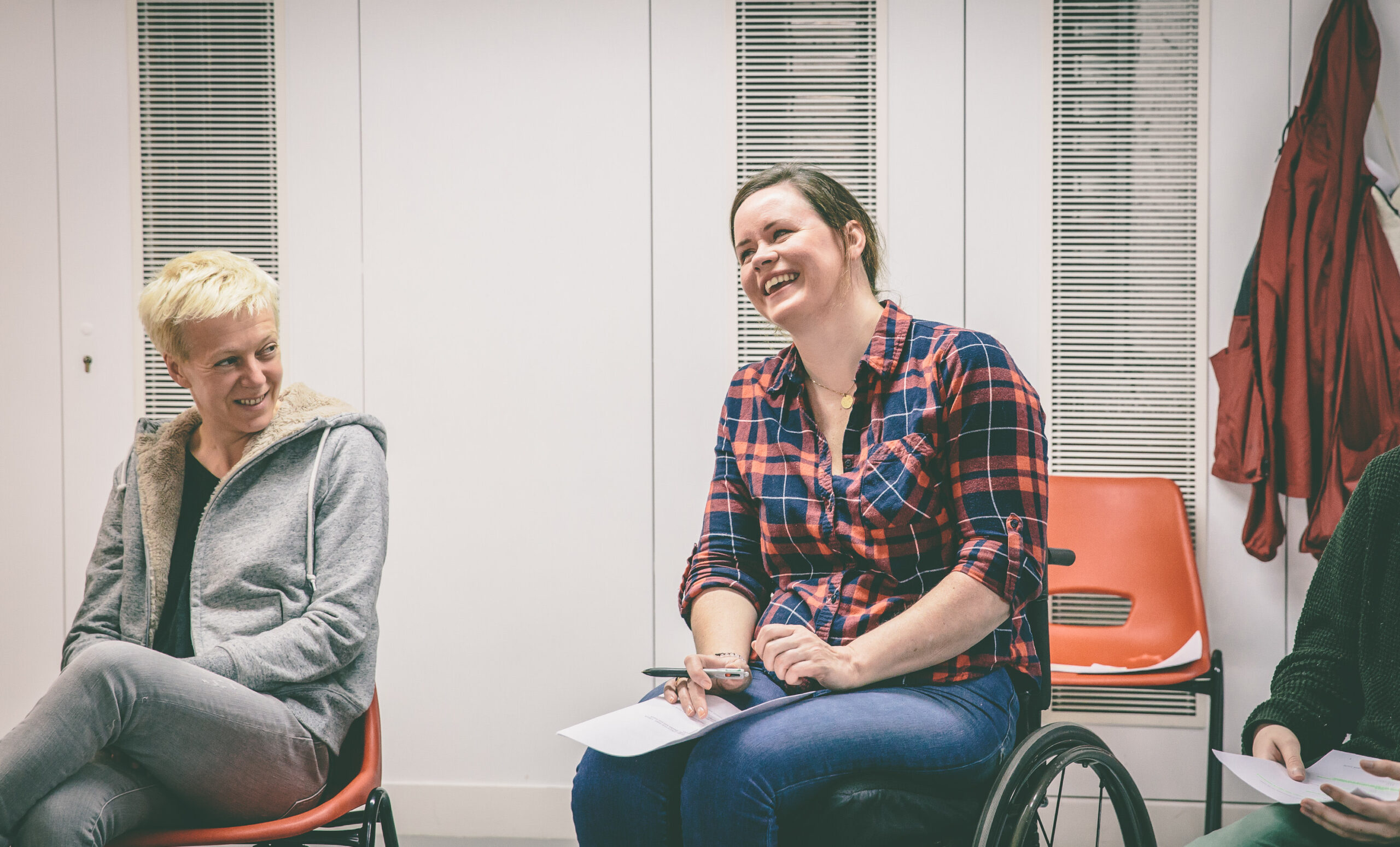Eight principles and actionable habits to help steer you towards an empowered frame of mind.
Empowerment: The feeling of control over the course of our lives. The belief our actions can create the results we desire.
Empowerment is a wonderful word and a powerful concept. But is it something we can apply to an acting career? Where career paths are determined after we’ve left the room, and parts are cast through a combination of tangible skills and ethereal ‘can’t explain it’ instinct?
Whilst many aspects of a board-treading life are unchangeable, there are ways of making independent progress in your professional journey. Even having more belief in your control can help the industry feel like less of a vacuum and more of a place to find enjoyment on your own terms.
Here are eight principles, with actionable habits, to help steer you towards an empowered frame of mind.
1. Play To Your Strengths
Feeling in your element helps you exude maximum confidence, charisma, and control. Clarify your strengths as an actor, and share your work with the casting teams of shows where those skills are sought after. Determination itself is also a strength; anything you’re willing to work hard to improve can eventually become one of your strongest assets.
Draw a line down a sheet of paper, and write ‘strengths’ and ‘areas I want to improve’ on either side. Fill each side in, and write one thing you could do to improve each skill over the next three months.
2. Be Patient
Whatever you’re working towards as an actor, be careful not to throw in the towel too quickly. Give your actions time to sink in. Think about your most meaningful professional relationships and the time they’ve taken to grow. A long-term approach to your acting career will help you stay focused on building positive habits without getting attached to fluctuating short-term progress.
Use a journal or recording device to track your progress with an acting goal. If you’re working on an accent, record the same passage each week and compare your monthly progress. Do something to celebrate the progress you’ve made at each review.
3. …But Not Too Patient
Whilst it’s important to give our actions time, it’s equally important to recognise when things haven’t moved forwards enough, or at all. Acting gives us heightened instincts; whether it’s a professional relationship, an acting method or the way your CV comes off the page. Acknowledging that something isn’t working is the first step toward changing it for the better.
Find actors who have achieved the things you feel blocked from, and invite them for a lunch-advice exchange. Be honest about your goals, and what you’ve done so far to reach them. Take their suggestions onboard, and set a date to assess your progress with the strategies of your new mentors.
4. Don’t Make ‘Mistakes’
Faults in career judgement are inevitable. But when we focus entirely on our wrongs, we lose the power to become smarter and stronger actors through the experience. By reframing mistakes as course-correcting opportunities, you show your capacity for wisdom and maturity, traits that will help both your craft and the career you build around it.
Think of a career ‘mistake’ you feel you’ve made. Write down three things this ‘mistake’ has taught you, and three ways you could translate these lessons into future situations. Review your notes ahead of these or other applicable events.
5. Master Your Clock
Making time for empowering career moves alongside your current responsibilities requires a tight schedule. The first step to creating one is knowing exactly how you spend your time, so you can accurately create space for more of the things that bring you joy and growth as an actor.
For one day next week, schedule every single activity into your calendar. Leave nothing spared. Study your itinerary and see how much free time you realistically have for new professional habits, as well as which tasks could be done more efficiently to give you extra work and recovery time.
6. Go With The Flow
One of the many reasons improvisers amaze me is their adaptability. They proudly flex their “yes, and…” muscles no matter how outlandish the prompt. When your career throws you a curveball, think about how you might curve with it. Don’t pressure yourself to find a solution as quickly as an improviser, but trust in your problem-solving skills to navigate the twists and turns this career often presents.
For every acting goal you have, think of at least three different ways to achieve it. Think about the challenges each route may present and ways to scale the hurdle. Bonus points for signing up for an actual improv class!
7. Set Tiny Goals
Setting manageable acting career goals allows you to get the confidence-boosting buzz of accomplishment several times over. It also helps honour your existing commitments whilst you work to achieve your goals.
Choose one acting goal and break it down into small increments (i.e. ‘email 10 casting directors’ becomes ‘find out who casts one show I feel right for’). Complete each task fully before moving on to the next.
8. Empower Others
If you’ve ever got the feels from being complimented on your work, you’ve got a proven way to empower others. By passing on advice and encouragement, you reinforce your knowledge as an actor and share first-hand how you’ve grown, which can help you see your progress in a new, empowering light.
Give positive reinforcement to at least one person in every professional environment you’re in. Give praise that feels authentic to you, be it in-person, or via message. Offer support to friends creating their own work, whether by offering skills or pointing them towards useful resources.
Just like the characters we create, many parameters of the acting profession are already set out. But within those parameters lies the scope for us to each decide how our personal skills will shape our performance. Take these moments in your stride, and take pride in everything you’re doing to build an enriching and enjoyable life as an actor.
Read more of Abiola Ogunbiyi’s articles or take a look at our supportive wellbeing advice pages.
 Abiola Ogunbiyi is an actor-performer, writer, and filmmaker working across film, stage, and television. She made her television debut as Maria in the Sky One/Carnival Films series ‘Jamestown’, and her feature film debut in ‘A Boy Called Christmas’ for Blueprint Pictures and StudioCanal. Abiola’s original work crosses multiple disciplines, and her comedy short ‘Sexellence’ won awards for Best International Film (Portland Comedy Film Festival) and Best Comedy Short (Budapest Independent Film Festival) respectively.
Abiola Ogunbiyi is an actor-performer, writer, and filmmaker working across film, stage, and television. She made her television debut as Maria in the Sky One/Carnival Films series ‘Jamestown’, and her feature film debut in ‘A Boy Called Christmas’ for Blueprint Pictures and StudioCanal. Abiola’s original work crosses multiple disciplines, and her comedy short ‘Sexellence’ won awards for Best International Film (Portland Comedy Film Festival) and Best Comedy Short (Budapest Independent Film Festival) respectively.
In addition to performing and writing, Abiola is the founder of The Artists Branch (TAB), a health and wellbeing platform for artists. Through TAB, Abiola leads bespoke workshops on topics including nutrition, self-confidence, career longevity, and self-care for performing arts schools, theatre companies, and arts organisations. She has led both online and in-person workshops for organisations including BAFTA, Equity, the Royal Academy of Music, and the Almeida Theatre, and speaks regularly at events around maintaining wellbeing as a creative professional.
Visit Abiola’s website and find The Artists Branch on Instagram.
Headshot credit: Claire Newman-Williams
Photo credit: Adamkaz / iStock












